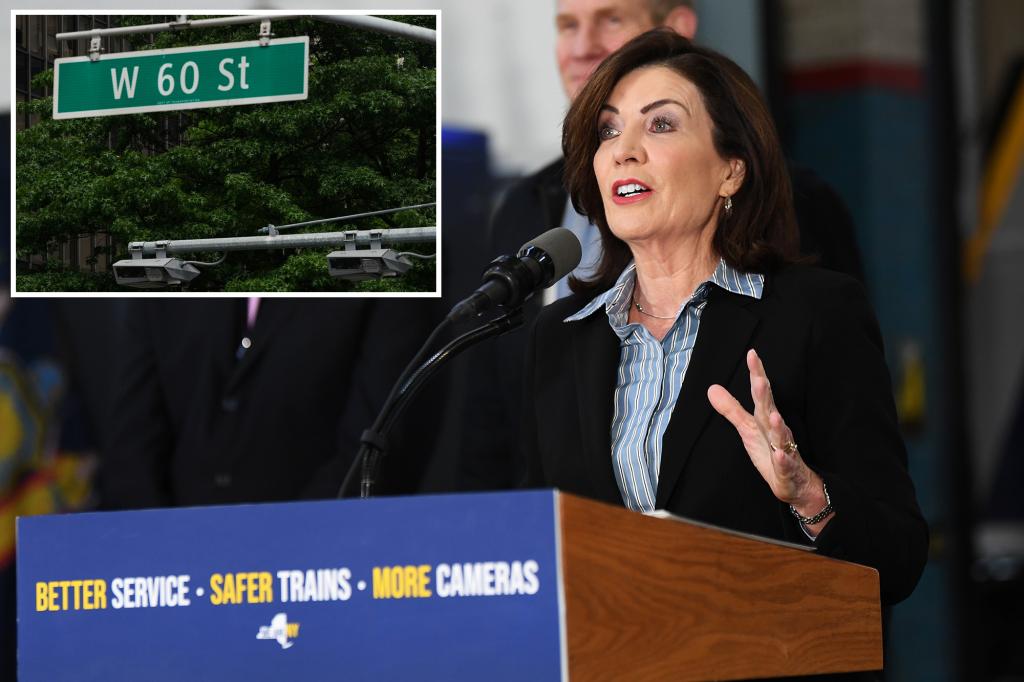The Metropolitan Transportation Authority has stopped construction projects at two Queens rail stations in response to Governor Kathy Hochul’s decision to halt the congestion pricing plan. The MTA sent a letter to a contractor ordering the suspension of work on Long Island Railroad stations in Forest Hills and Hollis in an effort to pressure Hochul to restore congestion pricing or find another revenue source for capital spending. The congestion pricing plan aimed to generate $1 billion in revenues annually to fund $15 billion in capital repairs, maintenance, and system expansion.
Forte Construction, the firm working on the LIRR projects, expressed dissatisfaction with the stop-work order due to lack of funding resulting from the pause in congestion pricing. The decision not only delays station improvements but also puts construction jobs at risk. Critics argue that the MTA’s decision to halt the projects demonstrates that the congestion toll was a money grab and not aimed at reducing congestion. They believe the transit authority should focus on reducing costs and improving efficiency rather than blaming others for its financial troubles.
The MTA has faced criticism for cost overruns in building new subway tracks and losing $700 million annually due to fare evasion. Critics, including Staten Island Borough President Vito Fossella and Councilman Joe Borelli, question the authority’s efficiency and transparency. Borelli believes the MTA should focus on essential projects and avoid wasteful spending. Hochul’s spokesman, Anthony Hogrebe, has reassured that the governor is working on alternative funding mechanisms for the MTA while congestion pricing is on hold.
The MTA has outlined cuts to its capital program due to lack of funds, with the suspension of work on projects like the Second Avenue subway expansion. The $7.7 billion phase two leg of the project would add three new stations, but without additional funds, many projects may not be completed. Transit sources suggest that the MTA’s actions amount to a mutiny, as they are pressuring the governor and legislature to find alternative financing solutions. Transit advocates, on the other hand, blame Hochul for the crisis, stating that the safety of the public should be the top priority with a focused construction program.
The MTA’s decision to halt construction projects in response to the pause in congestion pricing has raised concerns about the agency’s financial stability and long-term planning. Critics argue that the MTA should reevaluate its spending habits and prioritize essential projects to ensure the efficiency and sustainability of the transit system. While Hochul and the legislature work on alternative funding mechanisms for the MTA, the agency faces challenges in delivering necessary improvements and expansions to the transportation infrastructure. The ongoing debate over congestion pricing and funding sources highlights the complexities of managing a major metropolitan transportation system and the importance of finding sustainable solutions for future growth and development.












